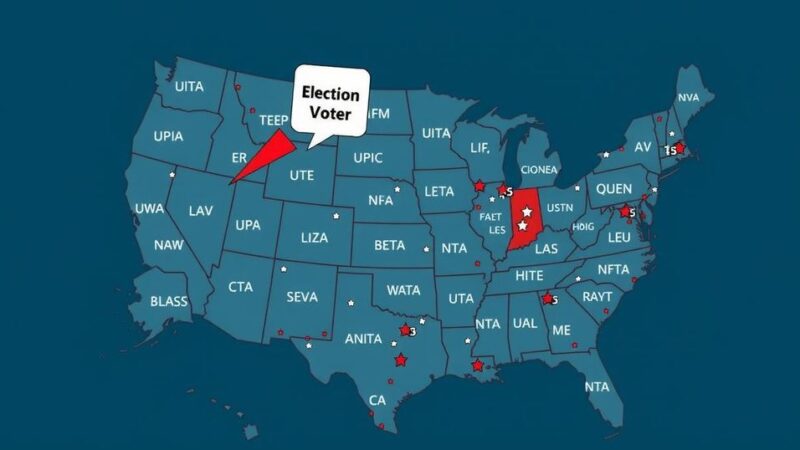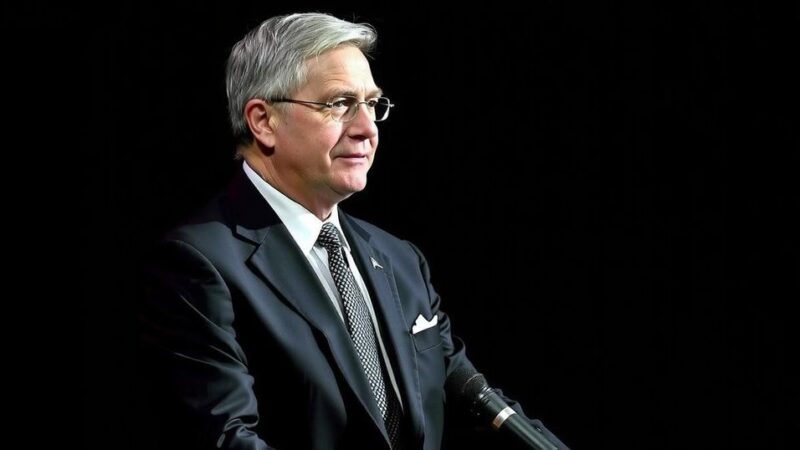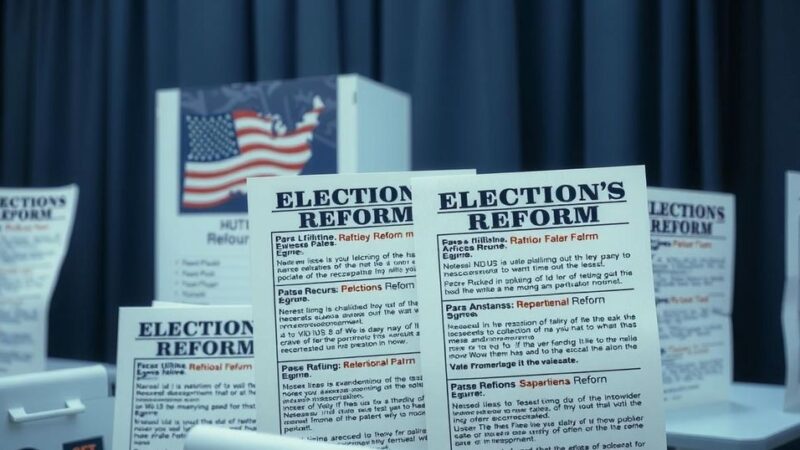The election for Colorado’s Senate District 5 could redefine Democratic power in the state, with Marc Catlin vying against Cole Buerger in a critical race that may grant Democrats supermajorities needed for substantial legislative change. Political dynamics in the district reflect shifts in voter registration and changing attitudes, positioning the candidates for a highly competitive showdown this November.
The upcoming election for Senate District 5 in Colorado’s Western Slope could significantly influence the Democratic Party’s power dynamics within the state legislature, potentially achieving levels of authority not seen in nearly a century. This competitive race pits Republican incumbent Marc Catlin against Democrat Cole Buerger, with analysts describing it as a toss-up; a win for Buerger could result in Democrat supermajorities across both legislative chambers, whereas a Catlin victory would maintain Republican resistance in the legislature. Achieving such majorities would empower Democrats to pursue substantial constitutional reforms impacting taxes, elections, and criminal justice, as well as to override vetoes from Democratic Governor Jared Polis, who has shown reservations regarding progressive policies. Senate District 5 represents a sizable and diverse area, with unaffiliated voters comprising the majority of the electorate. Political analysts note the shifting dynamics within Garfield County, where voter registration trends suggest a narrowing gap between Democrats and Republicans. Former Republican Majority Leader Tim Foster remarked on the necessity for candidates to adopt centrist positions to appeal to the district’s electorate. The current Republican incumbent, Perry Will, opted not to seek re-election, leaving the race open for contention. Buerger has positioned himself as a candidate focused on affordability and local issues, emphasizing a fresh approach compared to Catlin’s established bipartisan reputation. While Catlin has voted in favor of several Democratic legislative measures, Buerger argues that true bipartisanship is a result of necessity rather than mutual interest. The candidates’ campaign strategies highlight divergent visions for governance: Buerger advocates for rural concerns against an ideological agenda, while Catlin emphasizes the importance of legislative experience. As both campaigns gear up with fundraising and endorsements, the race remains critically important not only for the candidates but also for the broader implications on state politics following an election that could reshape Colorado’s legislative landscape.
The political landscape in Colorado, especially within the Western Slope, is undergoing significant examination as a Senate district race approaches. This election is unique due to the potential shift in Democratic power dynamics, which have not been experienced at such levels since 1938. The potential Democratic supermajority hinges upon the outcomes in key districts, with this particular race being deemed the most crucial. The electoral battle could influence not only party strategy but also the nature of proposed legislation concerning vital state issues such as taxes, criminal justice, and election reform.
In summation, the Senate District 5 race is emblematic of larger political tensions within Colorado. With the possibility of granting the Democratic Party unprecedented authority in the legislature, every detail of the upcoming election carries significant weight. The contest between Catlin and Buerger is not only a reflection of local voter preferences but also indicative of broader trends that could emerge in state governance. Regardless of outcomes, the race will likely serve as a bellwether for future elections across the region.
Original Source: www.postindependent.com






